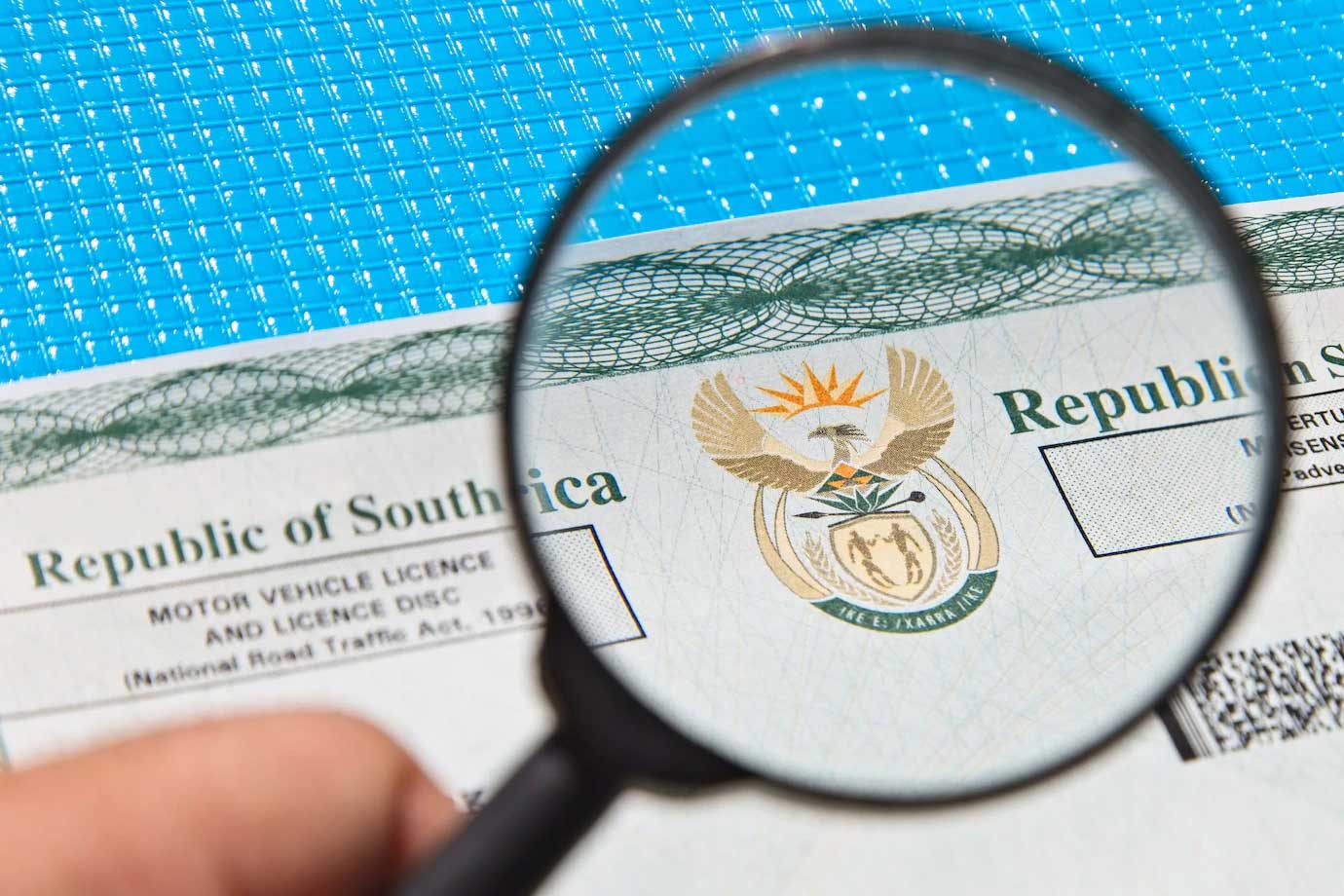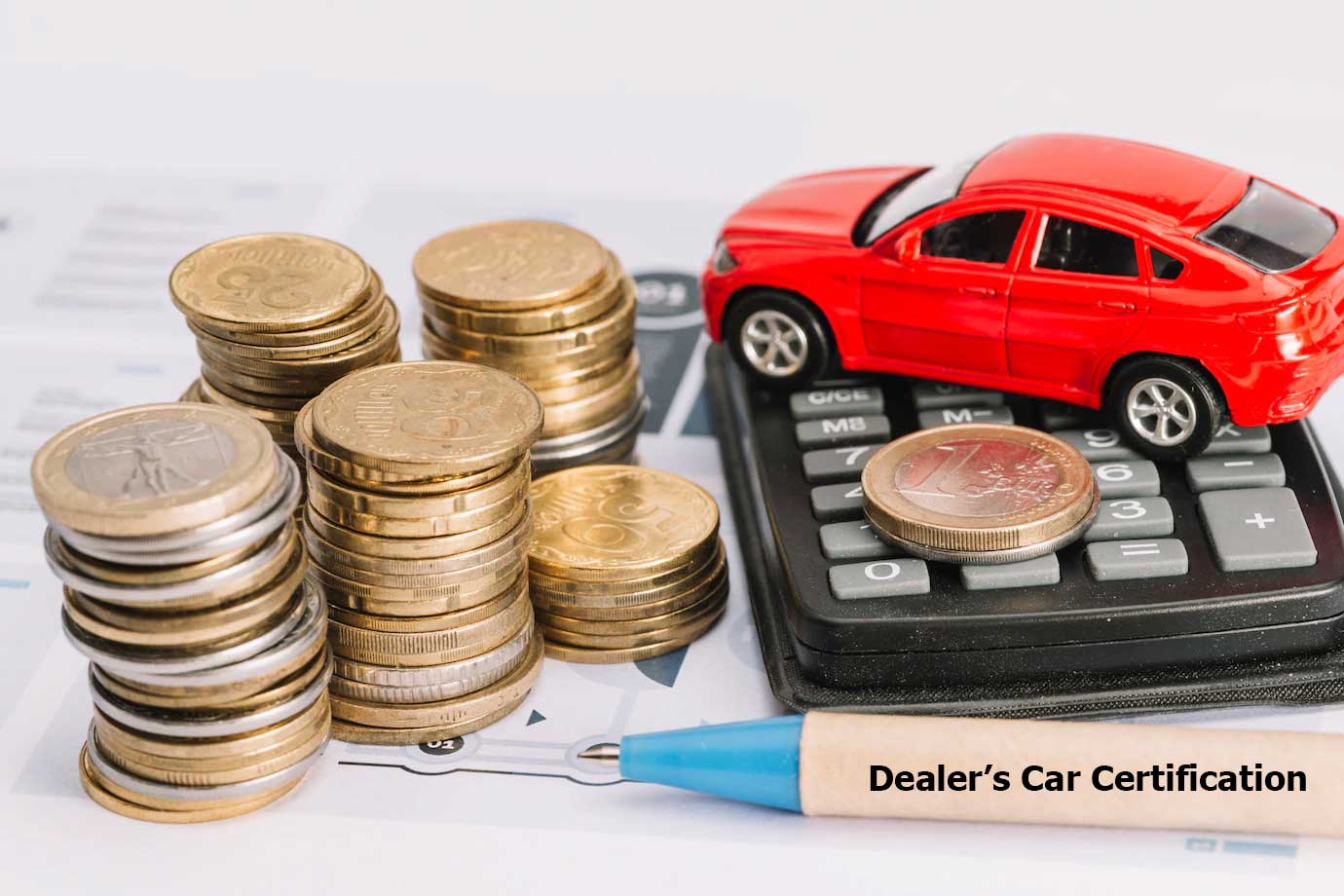Can You Ask A Dealer To Certify A Car?

Under factory CPO programs, dealers can only certify vehicles that are from the same brand they sell. For example, a Honda dealer cannot certify a CPO Toyota. According to the National Automobile Dealers Association, 2018, factory CPO programs are designed to give buyers peace of mind when purchasing used vehicles. These programs typically include a comprehensive inspection and factory-backed warranty, roadside assistance, and other benefits.
Can a dealer certify a car?
A CPO car is a vehicle that has been certified by the dealer to meet the manufacturer's specifications and requirements. The dealer usually performs the inspection and makes necessary repairs, and the automaker fully backs the vehicle as if it were selling a new car. The inspection and repairs ensure that the car is in top condition and meets the manufacturer's standards. See also why can't we book a car on Turo.
Dealers certify some cars to meet certain standards for the condition of the vehicle, and to provide an extended warranty for the customer. According to information on Quora.com about cars certification, not all used cars will qualify for certification, and the cost of the warranty is passed on to the customer. Certified cars must also meet the manufacturer's set of requirements, including passing inspections for roadworthiness, and having a certain number of miles on the odometer. And usually it is costly for the dealer.

What certification is required for a car?
The Clean Air Act requires that all engines and vehicles be covered by a Certificate of Conformity before they can enter into commerce. According to the Environmental Protection Agency (EPA), this certificate of conformity demonstrates that the respective engine or vehicle conforms to all applicable emission requirements. The EPA outlines an overview of certification and compliance for vehicles and engines, which includes information about the required documents and testing procedures to certify that the vehicle or engine meets EPA standards.
What documents are necessary for car certification?
It is important to keep three items in your car at all times: vehicle registration and proof of insurance, and your driver's license. According to the Department of Motor Vehicles, your registration and proof of insurance should be kept in a secure location, such as the glove box, where they are easy to find and hard to lose. Your driver's license, however, must be kept on you while in a car.
How long does it take for a car to be certified?
The certification of a car typically takes a few hours, but it can takes up to ive days to complete. So, it depends on some criteria. According to the National Highway Traffic Safety Administration, the certification process typically involves a multi-point inspection of the vehicle's components and systems to ensure it meets all safety and emissions standards. The inspection process may involve a visual inspection, testing of vehicle components, and a road test of the vehicle.
What are the costs associated with certifying a car?
Certifying a used car can add between 2% to 8% of the original used-car price according to Cars.com. This added cost provides consumers with peace of mind and assurance from the auto manufacturer. The certification sticker is an additional cost that is tacked on by the manufacturer for added confidence when purchasing a CPO vehicle.
Are there any warranties or guarantees when certifying a car?
Certified Pre-Owned (CPO) vehicles typically come with two warranties: a limited Powertrain warranty and a limited bumper-to-bumper warranty. According to caranddriver.com, the Powertrain warranty covers components such as the engine, transmission, and other major mechanical components, while the bumper-to-bumper warranty covers most other issues, such as the air conditioning and infotainment systems.
What types of inspections are required for car certification?
To certify a car, inspections must be performed at a licensed inspection station by a certified motor vehicle inspector. According to the New York State Vehicle Safety/Emissions Inspection Program, the inspection must be done at a station displaying an official sign, and must include a comprehensive review of the vehicle's safety systems and components, as well as a review of its emissions control systems and components.
Are there any special requirements for certifying a car?
Certifying a car typically requires that the car must have been inspected, refurbished, and certified by the manufacturer or dealer. According to U.S. News in 2020, some dealers have their own certified programs with similar benefits to manufacturer-sponsored programs, such as a warranty and/or roadside assistance. Requirements for certifying a car may include having a clean title, passing a vehicle inspection, having a low number of miles, and having all of the original components.
Are there any specific regulations that must be followed for car certification?
The Federal Motor Vehicle Safety Standards (FMVSS) are test procedures that are designed to ensure the safety of motor vehicles. According to the National Highway Traffic Safety Administration (NHTSA), in 2020, they proposed changes to these standards and invited public comments until February 8, 2021. These changes include modifications to the test procedures to further ensure the safety of motor vehicles, as well as allow for increased flexibility in the implementation of these standards.
What is the process for certifying a car?
A CPO car is certified by the dealer to meet the manufacturer's specifications and requirements. According to Autotrader.com, the dealer inspects and repairs the car to ensure it meets the standards set by the automaker, providing the same level of assurance as if it were a new vehicle. The certification process provides buyers with an added level of confidence in the quality of the car they are purchasing.
Car Certification : Frequently Asked Questions
What is Vehicle Inspection?
A vehicle inspection is a process where a vehicle is examined to ensure that it meets the road safety and environmental standards set by the government. According to the US Department of Transportation, Federal Motor Carrier Safety Administration, in 2020, all commercial motor vehicles must pass an annual vehicle inspection. During the inspection, the vehicle is checked for defects and compliance with applicable safety regulations, such as brakes, lights, and tires. The inspection also includes a review of the vehicle's registration, title, and other documents.
What is Pre-Purchase Evaluation?
A pre-purchase evaluation is an assessment of potential risks, benefits, and costs associated with a potential purchase. According to the U.S. Department of Agriculture, a 2019 study found that a pre-purchase evaluation of a farm or ranch can help identify potential production, financial, legal, and environmental risks. Pre-purchase evaluations involve an in-depth examination of the property, including a review of its historical production data, soil tests, infrastructure, and financial statements. They also involve meetings with the owners to discuss the goals of the purchase, the resources necessary to meet those goals, and the potential for future growth. Ultimately, the analysis of the evaluation results can provide valuable input for the buyer to make an informed decision about the purchase.
What is Vehicle History Report?
A Vehicle History Report is a document that provides information about a vehicle's past, including its registration, ownership, accident history and servicing records. According to the National Highway Traffic Safety Administration, a Vehicle History Report can help consumers make informed decisions when purchasing a used vehicle. It can also provide a full picture of the vehicle's condition, including any potential issues that may require repairs or maintenance. The report can also include data from the vehicle identification number (VIN) such as make, model, year, engine type and other important information.
What is Dealer Certification?
Dealer Certification is a process whereby dealers are trained and certified to provide customers with the highest quality service. According to a study by the National Automobile Dealers Association in 2020, Dealer Certification is an essential part of providing customers with a high level of service, as it ensures that dealers have the necessary knowledge and expertise to effectively serve customers. Specifically, Dealer Certification involves training dealers on the latest automotive technologies and service procedures, as well as providing them with the necessary tools to diagnose and repair vehicles.
What is Manufacturer Warranty?
Manufacturer Warranty is a promise made by the manufacturer of a product to repair or replace a product if it has a defect in materials or workmanship during the period of the warranty. According to the Federal Trade Commission (FTC), 2015, a manufacturer warranty is designed to protect consumers from product defects. The length of the manufacturer warranty may vary depending on the type of product, but it typically lasts from six months to two years from the date of purchase.
What is Mechanical Evaluation?
Mechanical Evaluation is a process in which an object is tested to determine its mechanical properties, such as strength, stiffness, and durability. According to the American Society for Testing and Materials (ASTM) International, mechanical evaluation is a type of testing used to measure the mechanical characteristics of a product, component, or material. These tests are typically used to evaluate materials for use in manufacturing, and often involve the use of specialized equipment to measure properties such as tensile strength, tear strength, and elongation.
What is Road Test?
Road Test is a method used to evaluate a driver's ability to safely operate a motor vehicle. According to the National Safety Council (2017), a Road Test is a comprehensive assessment of a driver's physical abilities, knowledge of traffic laws, and driving habits. The assessment consists of a series of tasks designed to evaluate a driver's ability to properly control a vehicle, handle hazardous traffic situations, and demonstrate a general knowledge of traffic laws. The results of the test are used to determine whether or not a driver is qualified to obtain a driver's license.
What is Emission Testing?
Emission testing is the process of measuring the amount of pollutants released into the environment from a vehicle or other source. According to the Environmental Protection Agency (EPA), emissions testing is conducted to determine compliance with air quality standards and regulations. The tests measure the amount of pollutants such as hydrocarbons, nitrogen oxides, carbon monoxide, and particulate matter, which are released into the atmosphere by motor vehicles. These pollutants can cause a variety of health and environmental issues and are regulated by the EPA.
What is Automotive Diagnostics?
Automotive Diagnostics is a process used to identify and troubleshoot vehicle problems or malfunctions. According to the National Institute for Automotive Service Excellence (ASE) in 2017, diagnostic testing involves the use of sophisticated computer-based tools to inspect, analyze, and diagnose suspected vehicle issues. These tools help service technicians to pinpoint the issue quickly and accurately, which can save time and money when it comes to vehicle repair.





